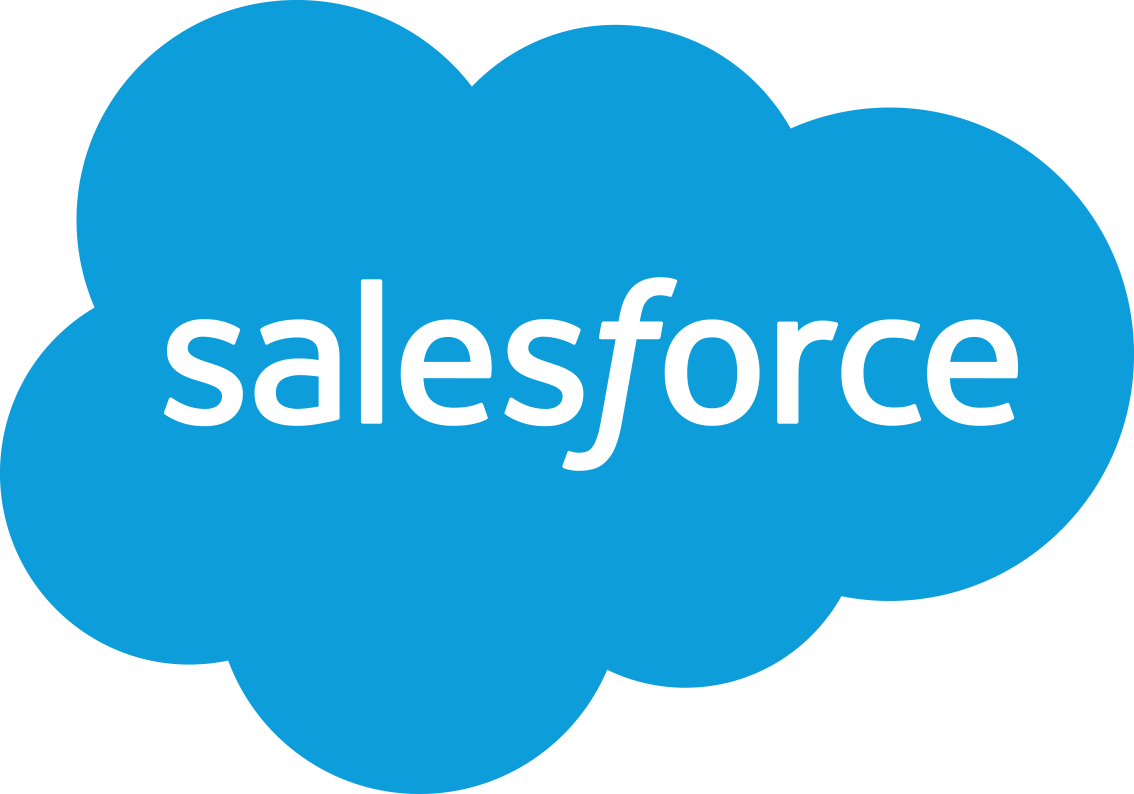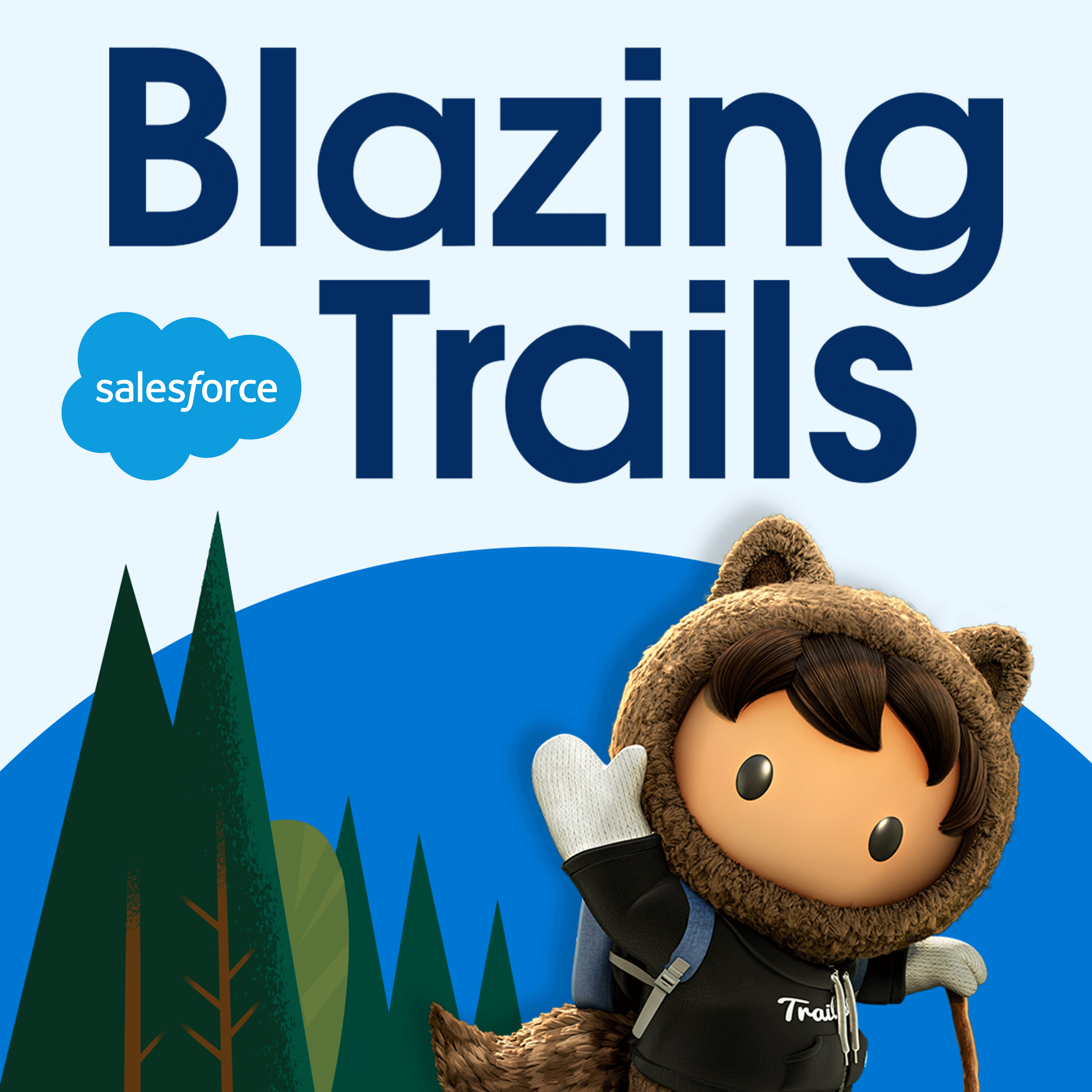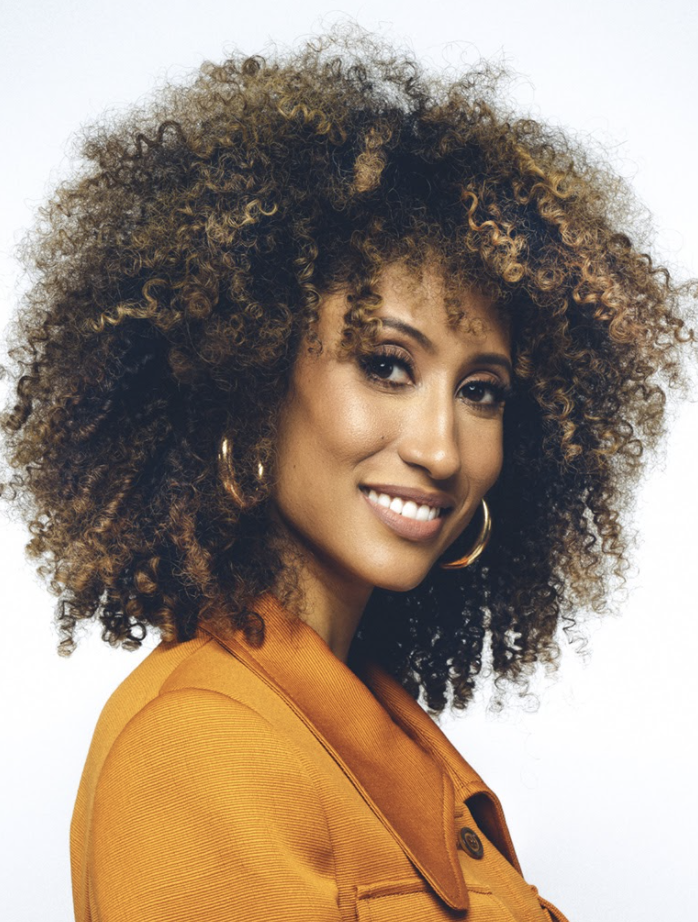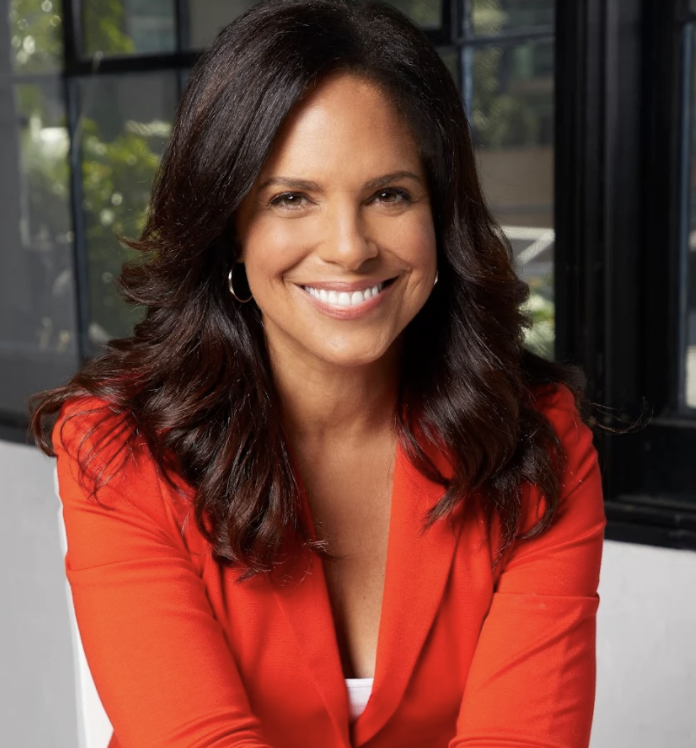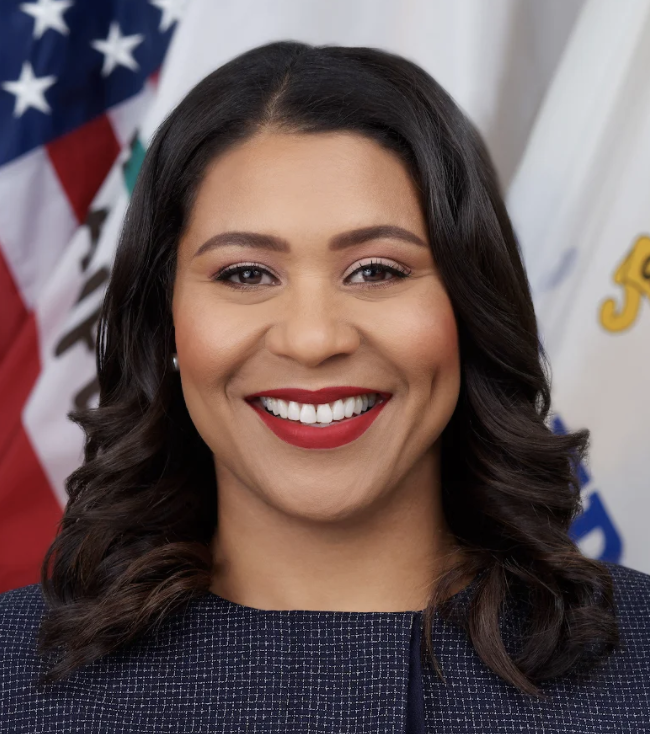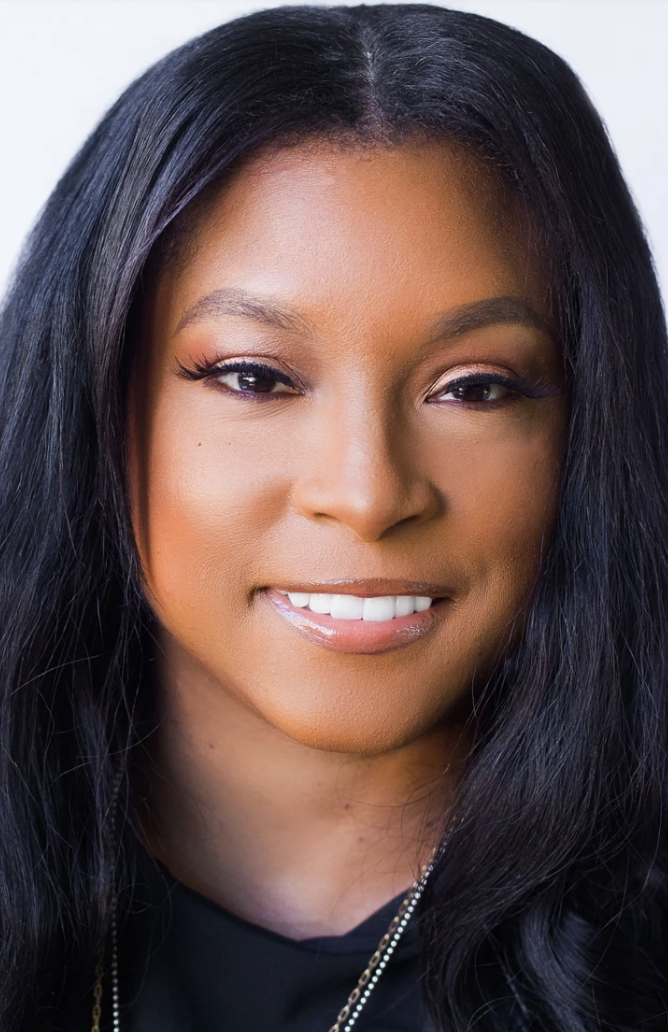Black Women in Leadership - A Conversation with Soledad O'Brian, Elaine Welteroth, San Francisco Mayor London Breed and Minda Harts
- 0.5
- 1
- 1.25
- 1.5
- 1.75
- 2
Michael Rivo: Welcome back to Blazing Trails. I'm Michael Rivo from Salesforce Studios. And today we're continuing our special Dreamforce 2021 coverage. This year's Dreamforce theme is Success Anywhere, Dreamforce Everywhere, which is how Dreamforce happened this year, both in person and digitally on the newly launched Salesforce +. So head over to salesforce. com/ plus to experience Dreamforce and much, much more. So today we're featuring an important conversation about Black women in leadership moderated by Soledad O'Brien, and joining her is San Francisco Mayor, London Breed, Minda Harts, CEO and bestselling author of The Memo, and Elaine Welteroth, the New York Times bestselling author, award- winning journalist, producer, and judge on the new Project Runway on Bravo. So let's get right into it and turn it over to Soledad.
Soledad O'Brien: Welcome to what is going to be an amazing panel, if I say so myself. This is a panel on Black women and leadership, and I'm going to begin by introducing our three panelists, bringing them out, and then we'll start our conversation. So we're going to start with a native San Franciscan, who became the first African American woman, the second woman in San Francisco history, elected to serve as Mayor. She was re- elected for her first four- year term in November 2019. She's focused on helping the city's homeless population, adding more housing for residents of all income levels, helping those who are suffering from mental health issues, changing the nature of policing, reinvesting in the city's African American community, and furthering San Francisco's leadership in combating climate change. Please join me in welcoming the Mayor of San Francisco, Mayor London Breed. Welcome Madam Mayor, nice to have you.
Mayor London Breed: Thank you.
Soledad O'Brien: Our next panelist is the CEO of The Memo LLC, also an award- winning bestselling author of The Memo: What Women of Color Need To Know To Secure A Seat At The Table. She's a Professor at NYU Wagner and also hosts a live weekly podcast called Secure The Seat. It's like secure the bag, I like it. In 2020, she was named the number one Top Voice for Equity in the workplace by LinkedIn, speaks frequently at companies like Microsoft and Amazon, and Nike, and Bloomberg about managing diverse teams, courageous leadership, and advancing women of color in the workplace. Please join me in welcoming our panelist, Minda Harts.
Minda Harts: Hi, everybody.
Soledad O'Brien: Nice to have you, Minda.
Minda Harts: Thank you.
Soledad O'Brien: Joining us remotely is New York Times bestselling author, award- winning journalist, producer, and judge on the new Project Runway on Bravo. She is known for her groundbreaking work at the helm of Teen Vogue, where she was appointed the youngest ever Editor- In- Chief at a Conde Nast publication, and she used that position to prioritize diversity and social justice coverage. She's also host on The Talk. Please join me in welcoming Elaine Welteroth, who's joining us remotely. Hi, Elaine. So nice to see you. Let's begin with a question, and Elaine, I'll have you start us off. People often talk about Black excellence. I'd like each of you to... What's that mean to you? What's the definition of Black excellence to you? Elaine, why don't you start?
Elaine Welteroth: Well, first of all, hi, San Francisco. I'm actually from the Bay Area, so it saddens me that I cannot be there with you in person, but Black excellence is this panel. Black excellence, I think can mean a lot of different things. I think everybody on this panel embodies it in a different way. I think it's a state of mind, it's a way of being, it's self- care, it's solidarity. I think at its best, Black excellence open doors and creates opportunities for other people from your community. I think at the same time, it's also a bit of a tricky concept that can be misappropriated. I think especially for so many Black women, we've sort of been conditioned to believe that we have to work 10 times as hard for sometimes half or fraction of the respect and pay. And I think that is not necessarily Black excellence. I think that we have work to do systemically to level the playing field, and to make sure that Black women aren't carrying the burden of the work, both in the household and in the workplace, in the name of Black excellence. So I think we have a long way to go to be able to fully realize it in its holistic sense. But I think those are some of the things that come to mind when I think of Black excellence.
Soledad O'Brien: I'd love to hear from you, Mayor Breed, which is, she's listed a lot of things. Are there things that you would add, or even take away from her list of what Black excellence is?
Mayor London Breed: I would just say ditto. Ditto to everything she said. And I also think that part of it is... One of the things I wanted to just expand on is just as a Black woman in leadership and in politics, there's a different set of expectations of African American, especially women, than there are of other people when it comes to decisions. I know oftentimes I've seen people who have been mayors in the past, not necessarily make sometimes as good a decision as I've made being mayor, but also get credit for things that aren't even that significant. And I'm not necessarily looking for credit. I know that I have to work 10 times as hard in order to just earn the respect and sometimes trust of the people that expect a lot out of you when you're in a position like this. And it's tough because you have a lot of weight on your shoulders. You have a lot of people who are depending on you and you've got just more than just being a person on your own who's in leadership. You're a Black woman and that means a lot when you're representing folks.
Soledad O'Brien: Minda, this is really what you write about and what you talk about, and what you lead conversations about. It's interesting to hear Elaine talk about some of the limitations, maybe of Black excellence. How do you view it?
Minda Harts: Yeah. Actually, I have to say amen to both what Elaine said and Mayor Breed, but I would say that Black excellence, in my opinion is freedom. Freedom is no longer feeling confined and once we're able to no longer see ourselves through the eyes of somebody else, then we are freer to be who we need to be. And I realized that I was leaning into Black excellence when I was no longer thinking about what the dominant majority thought about me. And lastly, I realized that I belong in every room that I enter, but maybe every room doesn't deserve to have me, and that's part of crosstalk.
Soledad O'Brien: That's a great point. Elaine, you were the first Black Beauty Director at a Conde Nast publication. I mentioned this in your introduction, and then you became Editor- In- Chief, and you were the youngest to hold that title. And I think all of that came with a lot of praise, and I have to imagine, and I know a little insider stuff about some of the obstacles too. Talk a little bit about navigating obstacles as a Black woman leader?
Elaine Welteroth: Ooh, how much time do you have Soledad?
Soledad O'Brien: 30 words or less.
Elaine Welteroth: Well, I think, first of all, it was both an extraordinary opportunity to expand the conversations that we were having, an influential media platform speaking directly to young people during a really pivotal time in our country. And I'm really proud of what we were able to do in terms of expanding the focus and the narrative from just fashion and celebrity, to politics and social justice, and giving a platform to young activists, and making the newsroom more diverse. I will also say that on a personal level, as a young Black female leader, there were a lot of bewildering moments as well behind the scenes, recognizing what it really means to implement changes like that within a system that doesn't always and prepared to practice some of those values.
Soledad O'Brien: What do you mean by bewildering moments?
Elaine Welteroth: I think Mayor said it best. I think she spoke to the double standards that often afflict women, Black women in these leadership positions, particularly when you are a first. We love as a culture to celebrate a win for the culture, right? We rally behind these big announcements and appointments, but we rarely see into the cuts and bruises, if you will, that are often a result of breaking through that proverbial glass ceiling. And so for me, that's why I felt the need to, and the urgency, and the responsibility to write my book and share, pull that veil back a little bit, because we do such amazing work when we're in these roles, and we aren't often given the credit for it, but even if we are, we aren't given the space to talk about the challenges that come with it. And just one of the challenges that came with it for me, was getting promoted into this position and bringing a lot of value because of my identity and race, and culture, and understanding of a different demographic than had ever been really represented before from that platform, but then being subsequently sort of discounted because of those very same things. I was the Beauty Director, being promoted to the leader of the organization and was offered a raise to do that job, which was needless to say, a fraction of what anyone in and any Editor- In- Chief role had ever been offered to do the very same job. And so, that's just one of a myriad of challenges that I faced and had to overcome, and I'm not alone. This is a universal sort of experience. It's just not one that we often feel that we have the agency or the safety of a space to talk about honestly.
Soledad O'Brien: Madam Mayor, you said this," I am the Mayor, but I'm a Black woman first." And I can't even tell you the number of interviews I've done with CEOs or elected officials who make it very clear because I'll ask them," So are you the Black CEO?"" Oh, I am a CEO and whether if I'm Black or Hispanic, it doesn't really matter." So I thought what you said was kind of the opposite of what 99% of leaders say. Tell me why you framed it that way?
Mayor London Breed: I think it had a lot to do with... Well, let's start with this. I was born and raised in San Francisco, and I was born and raised in... Thank you for my native San Franciscan. And I was born and raised in poverty in San Francisco, in a predominantly African American neighborhood. And I don't think that in order to be in politics, that you have to choose one versus the other. As mayor, it really bothers me that we have less than 6% of the population that's African American, but we have almost 40% of the homeless who are African American. The folks who are involved in the criminal justice system, disproportionately are overrepresented with African Americans, and I can go through a number of statistics that clearly shows in San Francisco, something is wrong, right? And part of why I point that out is because I want people to understand that I'm speaking from experience when I push as mayor, a policy agenda, but also financial investments to turn the tide because we can't keep talking about what we want to see happen in a community, unless we're willing to make change that makes people uncomfortable. So when I, as Mayor, diverted$ 120 million from our law enforcement agencies, specifically to invest in the African American community, it was perceived in the wrong way. It's not about defunding the police. It's not about trying to make a statement because of the racial uprising. It's because in my experience, everyone is outraged about what happens to Black people in this country, but when you make a decision to make change that makes people uncomfortable, all of a sudden, it's like," Well wait a minute. I don't know. We probably shouldn't do that because..." It's like, if not this, then what? If not now, then when? We have to start making real change. And so I wanted to make sure people understood that when George Floyd was killed, I couldn't help but think about even sadly, my cousin, who I lost in San Francisco, who was killed by police in San Francisco. And just now as mayor, I'm in charge of this department with the desires to see it improve, based on, again, my experience. So people say they want change, and what I am trying to do as mayor, is that change. It doesn't mean that I'm going to sacrifice one community over another. I'm just going to look at the data. I'm going to look at what happens, and I'm also going to look at my own experiences as a Black woman who grew up in poverty, who grew up in this city, and make decisions that I think are going to improve the lives of Black people and those who are disenfranchised, which in essence, improves the lives of people in our city, in our society. So it has a lot to do with that.
Soledad O'Brien: Your book, Right Within, Minda, you talk about strategies for women of color on how to speak up when they're faced with microaggressions or racialized traumas in the workplace. And there are plenty of workplaces where I think sort of the philosophy has always been," No, no, no, not in the workplace. Don't make people uncomfortable. Certainly do not talk about trauma, racialized anything, ixnay all the awkward conversations. Everybody just needs to smile, put on a happy face and make it through the day." I know things have changed because many of us of course, are working the bulk of our time at home, but we'll be back in an office, I think to a large degree very soon. Tell me a little bit about what the value is in having a space to openly talk about traumas and microaggressions?
Minda Harts: Yeah. I'm really excited about my next book that comes out next month, Right Within, because Elaine talked about it, those bruises, right? Many of us experience a work day. I was in my former life for 15 years. I know I look about 15, but trust-
Soledad O'Brien: So when you were born. Yes.
Minda Harts: When I was five. When I was in my former life, there wasn't a day that went by that I didn't experience racism, but back then, you were one of few or the only. And so you kept questioning," Is this racism? Is it not?"
Soledad O'Brien: "Am I crazy?"
Minda Harts: "Am I crazy? Am I not?" And so, eventually that starts to impact your mental health and your well- being. And oftentimes when you do try to bring it to the forefront, you're met with," No, that's not what... That's just Bob being Bob, or that's not what I meant. You took it the wrong way." So you're always dismissed, and so I started to think about that tax that many of us as Black women, people of color experience, and we never have the space to be able to talk about those things. So how do we make... how do we heal, right? How do we heal from those and how do we make a workplace work for everybody, not just the select few? And so first, we have to commit to ourselves and heal, but then also, we need to hold our managers and leaders accountable to create psychological safety, so that we can thrive and not just survive. So I feel like it's no longer," Can we just throw this under the rug?" Soledad, we have to put it on top of the rug and handle it.
Soledad O'Brien: Yeah. I've seen more leaders as a... I'm beginning to see more leaders understand that.
Minda Harts: Yeah.
Soledad O'Brien: Like really begin to understand that actually, you're not going to have a healthy workplace until you really start navigating some of these.
Minda Harts: And two things can be true at the same time. You may never experience it as a White manager, but I might experience it every single day. So how do we fix it? How do we come to a resolution?
Soledad O'Brien: That brings me to an interesting point about access to leadership, and we know that women of color generally, Black women specifically, often don't have the same access to leadership, which is that thing that helps you obviously grow your career and get ahead. I had a crazy interview once with a CEO who... I will do him a favor and not name him, but he said this to me. He said this about how he saw people in his organization. He had a very large... He said," I see White men kind of around me. If you're thinking like concentric circles, me in the middle, White men, then Black men." And a lot of that I think was kind of around golf to be honest, like how we interact and get to know each other socially. And then White women, and then the outer circle was Black women. One, I was surprised that anybody would ever say that out loud. That's crazy, right? He was saying very clearly, the outer circle are all the Black women in my organization. So no big shock when all those... They had a very high turnover for their women of color in the organization. How do we think companies can do better in making sure that, that the outer circle actually has much more access to the CEO, which we know is correlated to your success within the organization? Elaine, why don't you start that for me?
Elaine Welteroth: Well, I think it's a really big question, and I think that, as to your point Soledad, I do think that companies are at least attempting to prioritize problem solving around this. I think more voices are being heard around the table on how to tackle this. In my experience, there haven't been perfect solutions. I think that unfortunately, in my career and the career of many Black women I know, operating at a high level, a lot of it does come down to the individual, seeking out advocates internally, building those relationships, being really self- motivated, and creating those opportunities for mentorship and networking, and advocacy within any organization, and it just tends to be harder for us to navigate that. I do think for me, in general, outside of the organization or the corporate structure that I've ever operated in, finding my tribe outside of that, identifying Black leaders, women of color leaders, who are perhaps operating at high levels in other industries and other spaces, and really cultivating those relationships, and being able to have them on speed dial and call them when we need them, and lift them up when they need that as well. To me, that has been extraordinary. That has been the sort of saving grace and the salve to the wounds that are inevitable. And it's actually helped me strategize in my career beyond any sort of corporate initiative that has been put forth, but that's not to say we don't need both. We do need more infrastructure. We do need this to be prioritized more within organizations, but I also think there's no substitute for cultivating your tribe and your safe spaces outside of the workplace as well, to help you navigate.
Soledad O'Brien: It's really good advice. Minda how about for you? Because I know, again, this is something that you teach people how to navigate. How do you improve that?
Minda Harts: Yeah. One of the things, Soledad, that I've really been double- downing on is...
Soledad O'Brien: Double- down, is that a word?
Minda Harts: It's like a tongue- twister.
Soledad O'Brien: It is now. It is a word. We're making it a word, right now.
Minda Harts: I would say managers, right? I think when I think about the managers that I had, if I had a good inclusive manager, they would remove barriers for me, instead of making them worse. And I think that we have to commit to equitable practices, and that means creating legislation or creating policies and procedures inside of workplaces that are transparent. So for one, women of color, Black women, we make 63 cents on a dollar. We would have to work 214 days just to reach parity of a White man extra. And so, what if companies are pay transparency, right? Doing those pay audits, or if you look at the About Us pages, there's a problem there, right? Because it's primarily all one particular demographic. And so, what about our hiring slates? Let's not move forward with another position and hire another White man or woman and look at," Have we made this position accessible to others?" And so, I think we really have to look at the policies and procedures to really move the needle forward. And it has to be demonstrated because if I'm a Black woman working at a company, and I keep hearing my leaders say," Diversity, diversity, diversity," and I never see that represented... Then I'm going to leave, and then you're really going to have a pipeline problem.
Soledad O'Brien: Yeah. Transparency and accountability, I think is key.
Minda Harts: Yeah.
Soledad O'Brien: I'm going to give you the final word today because we're almost out of time for our panel, Madam Mayor. A lot of what you guys talk about is advocating for yourself, that there are the structures that can really help, but also, a big piece of it is advocating for yourself. What advice do you give people in this audience, people who are listening, any young woman of color, about how to best advocate for herself, whether she wants to be a mayor or she wants to be in corporate leadership, or she wants to be an entrepreneur launching her own business?
Mayor London Breed: Yeah. Well, let me just add. I want to say something quickly about what we need to do in corporate world and just in society in general, to change how we support Black people in general, and especially Black women. We need to trust and respect Black women in the society. In politics, sadly, folks always think the worst of Black people, and I always get certain stigmas attached to me. As soon as something comes out, people assume the worst, and all of a sudden, I'm a criminal, I'm a crook, I'm a this, I'm a that, with no evidence to demonstrate that that's the case. It's always the worst, but that's not always the case with people who are not African American in politics. And so, part of what any young person who's looking into the corporate world and advancing their careers in any capacity in the political world, I would just say, you have to trust who you are. You have to trust what you know you're capable of. You have to trust your worth. And I was really blessed because I was raised, as I said, in public housing, but I had a grandmother who was a praying grandmother, and who created this force field of protection. So when the haters and the people who come from me who say," You shouldn't run in this community, there aren't enough Black people here. Or you probably can't raise the money, or you probably can't do something," I know what I'm capable of. I know I'm Ms. Brown's granddaughter, and I know that I have everything in me to be a success. So don't allow fear to enter into your thought process when making a decision. Had I allowed fear to consume me, I wouldn't have went to college. I wouldn't have ran for office in the first place against all odds. I wouldn't have run for Mayor. And I think it's important that we do everything we can, even if we don't understand someone, even if we don't understand their culture or their issues, or what have you, we need to at least show respect. We need to at least give people the benefit of the doubt. And if we care about promoting and supporting and uplifting this community, especially in light of everything that happened that literally tore our country apart last year, then we've got to start making change, not just talking about," Oh, equity, we care about equity." And all of a sudden, you don't see anything reflected. And me, I appoint Commissioners. I hire Department Heads. We created an office of racial equity to look at various departments so we could create plans that lead to results. And we're seeing a level of change within the City and County, San Francisco, even with a smaller African American population. So there's a lot of work to do, but we have to also do it with actions and not just talk about what we want to see happen. We have to be about it and make it happen in what we do in our lives.
Soledad O'Brien: It's a wonderful way to end our panel. Mayor London Breed, and Minda Harts, and of course, Elaine Welteroth, thank you guys. Really appreciate it.
Mayor London Breed: Thank you.
Michael Rivo: That was Soledad O'Brien in conversation with San Francisco Mayor, London Breed, bestselling author and CEO of The Memo, Minda Harts, and Elaine Welteroth, New York Times bestselling author, award- winning journalist, producer, and judge on the new Project Runway on Bravo. If you liked this episode, be sure to subscribe wherever you get your podcast, and be sure to check out this year's Dreamforce on Salesforce +, that's salesforce. com/ plus. Thanks for listening today. I'm Michael Rivo from Salesforce Studios.
DESCRIPTION
The question for Black women should never be, “Do I deserve to be in this room?” It should be “Does this room deserve me?”
As our Dreamforce 2021 coverage continues, today we feature a conversation with moderator Soledad O'Brian and a panel of powerful women for a conversation on Black Women in Leadership. Soledad, an award-winning journalist and author, is joined by Elaine Welteroth, New York Times bestselling author; San Francisco Mayor London Breed; and Minda Harts, workplace & equity consultant, award winning Author
The panel discusses leadership challenges they have each faced, overcoming double standards, and what “Black excellence” means to them. Plus, they explain that to do the right thing, you must be willing to champion change that makes people uncomfortable. All that and more on today’s episode of Blazing Trails.
